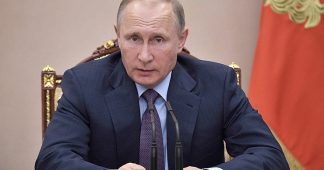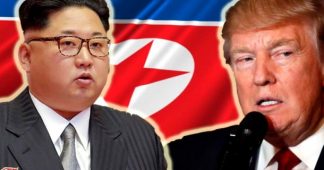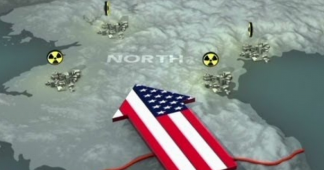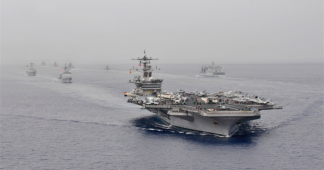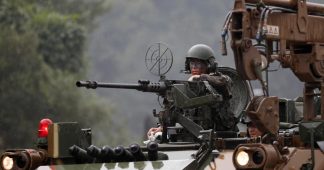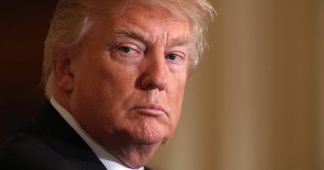Leaders from the foreign ministries of both China and Russia have called on North Korea and the United States to end the cycle of provocation that the DPRK recently claimed was making war on the Korean Peninsula inevitable.
North Korea accused the US of “confrontational warmongering” that made inevitable a resumption of hostilities in Korea after 64 years of a shaky detente. “The remaining question now is: when will the war break out?” the Foreign Ministry wrote in a statement. “We do not wish for a war but shall not hide from it.”
The comments came in response to one of the Korean Peninsula’s largest military exercises of 2017, which is saying something: the US-South Korean “Vigilant Ace” air exercises that have involved 230 aircraft, including stealth fighters and B-1B strategic bombers that can be equipped with nuclear bombs.
It’s the same old story, but every week it seems to become just a little less about posturing and a little more about real preparation for calamitous warfare. China, who would likely would prefer not to have war on their borders, has pushed for cooler heads to prevail.
“We hope all relevant parties can maintain calm and restraint and take steps to alleviate tensions and not provoke each other,” Chinese Foreign Ministry spokesman Geng Shuang said in a Wednesday statement. “The outbreak of war is not in any side’s interest. The ones that will suffer the most are ordinary people.”
Russia, which also borders North Korea, echoed this stance by way of Foreign Minister Sergei Lavrov telling US Secretary of State Rex Tillerson during the Vienna meeting of the Organization for Security and Cooperation in Europe (OSCE) that the large-scale military exercises and aggressive rhetoric of US President Donald Trump were contributing to a rise in tension.
“I am not trying to excuse this [North Korean] launch,” Lavrov said during his speech before the OSCE. “We condemned it and demanded that North Korea fully complied with the resolution of the UN Security Council. But the United States acted as if they wanted to provoke them for a new risky venture. And so they did. Of course now it will get more difficult to create conditions for renewing the dialogue.
“But we are certain — the North Koreans told us that repeatedly — that they need security guarantees,” Lavrov pleaded. Indeed, if one were to ask Supreme Leader Kim Jong-un, he would reply that his country’s nuclear weapons program was driven by just such a need, in the absence of a permanent peace on paper.
Lavrov also told the Interfax news agency that he had passed a message from Tillerson to Pyongyang: a desire to sit down at the negotiating table and try to end the crisis. “We know that North Korea wants above all to talk to the United States about guarantees for its security. We are ready to support that, we are ready to take part in facilitating such negotiations,” he said.
But the State Department’s demand for negotiations may not be one with which North Korea is willing to agree. Spokeswoman Heather Nauert said that Washington will not bother with talks unless North Korea is “willing to denuclearize.”
“It is something that Russia says it agrees with; it is something China has said it agrees with, and many other nations around the world as well,” Nauert said during a press briefing. But North Korea has not shown “any interest in sitting down and having any kind of serious conversations when they continue to fire off ballistic missiles.”
After ten weeks of silence, North Korea tested a new missile in the last days of November: the Hwasong-15 intercontinental ballistic missile (ICBM). While the test failed as the missile broke up upon re-entry, an operational Hwasong-15 could strike anywhere in the US, and almost anywhere in the world.
A few days later, Vigilant Ace began — it has generally been the pattern of Washington to respond to North Korean missile tests with shows of naked force, although the annual exercise had been planned far in advance and was not a direct response to the Hwasong-15 test.
Published in https://sputniknews.com
